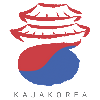Korean Lessons ᚛ Level 2 - Korean for Beginners #1 (Lessons 31 to 60) ᚛ Lesson 58 - Conjugation of honorific verbs [-(으)셔] [-(으)세요]
Conjugation of honorific verbs [-(으)셔] [-(으)세요]
Now that we know how to create an honorific verb, let's see how they function in sentences.
Conjugation of honorific verbs
Honorific verbs are just like other verbs and can therefore be conjugated in all of the ways we've seen up till now.
가다 has 가시다, which can be conjugated in the same way as other verbs ending inㅣ, for its honorific form:
- present tense, casual style: 가셔
- present tense, polite style: 가셔요
- present tense, formal style: 가십니다
- past tense, casual style: 가셨어
- past tense, polite style: 가셨어요
- past tense, formal style: 가셨습니다
- future tense, casual style: 가실 거야
- future tense, polite style: 가실 거예요
- future tense, formal style: 가실 겁니다
- ... etc
However, there is an exception that occurs only in the polite style in the present tense. Basically, even though the form conjugated with -(으)셔요 is correct, it is very rarely used and the form -(으)세요 is preferred.
So:
- The honorific form of 가다 is 가시다 which, conjugated in the present polite style, yields: 가세요.
- The honorific form of 하다 is 하시다 which, conjugated in the present polite style, yields: 하세요.
- The honorific form of 주다 is 주시다 which, conjugated in the present polite style, yields: 주세요.
- The honorific form of 읽다 is 읽으시다 which, conjugated in the present polite style, yields: 읽으세요.
Note that this form with -(으)세요 is only used in the polite style, in the present tense.
과장님, 배고프세요?
→ Boss, are you hungry?
언제 가셨어요?
→ When did you leave?
선생님 전화하셨어.
→ The teacher called.
실례지만 누구세요?
→ Excuse me, but who are you?
할아버지께서 주신 시계입니다.
→ It's a watch my grandfather gave me.
안녕히 계세요.
→ Goodbye. (Lit: Stay peacefully.)
드시고 가세요?
→ For here or to go? (Lit: You're eating then you're leaving?)
아버지, 안녕히 주무셨어요?
→ Dad, did you sleep peacefully?
Exercises
Learn more
This printable eBook teaches you Korean writing and includes more than 1,000 Korean vocabulary words divided into 40 categories. Each word comes with audio pronunciation recorded by native Korean speakers (no AI)!
On top of that, you’ll also get access to an online vocabulary learning tool based on the scientifically proven Leitner spaced repetition method.
Learn more

